INTERMITTENT FASTING: the complete guide
Hi everyone... I practice INTERMITTENT FASTING since many years and I believe it's one of the best life-style approach everyone can try to get healthier, leaner and happier.
I wrote this guide few weeks ago for a side project I was working on, and I decided to publish here on Steemit.
So here it goes... feel free to comment below or ask any questions related to the topic, I'll be happy to answer.
INTERMITTENT FASTING GUIDE
INDEX
- WHAT IS
- HEALTH BENEFITS
- LIFESTYLE BENEFITS
- HISTORY
- METHODS
- TIPS & ADVICES
- FINAL THOUGHTS
• WHAT IS
Fasting, by definition, is a willing abstinence or reduction from some or all food, drink, or both, for a period of time. In a physiological context, Fasting may refer to the metabolic status of a person who has not eaten overnight, or to the metabolic state achieved after complete digestion and absorption of a meal.
Intermittent Fasting thought is the concept created to describe the various protocols that cycle between a period of fasting (no eating) and non-fasting (feeding window).
We’ll discuss all the principal kind of methods later in the guide, but for now, it’s enough to mention that the differences come from expanding the fasting window. The fasting period on specific protocols can range from 14/16 hours all the way up to 36 hours, and each of those plans will have different benefits.
Personally I don’t like to describe Intermittent Fasting as a diet, a program or a special solution. To me it’s a lifestyle, an approach to food that can be kept for the rest of my life.
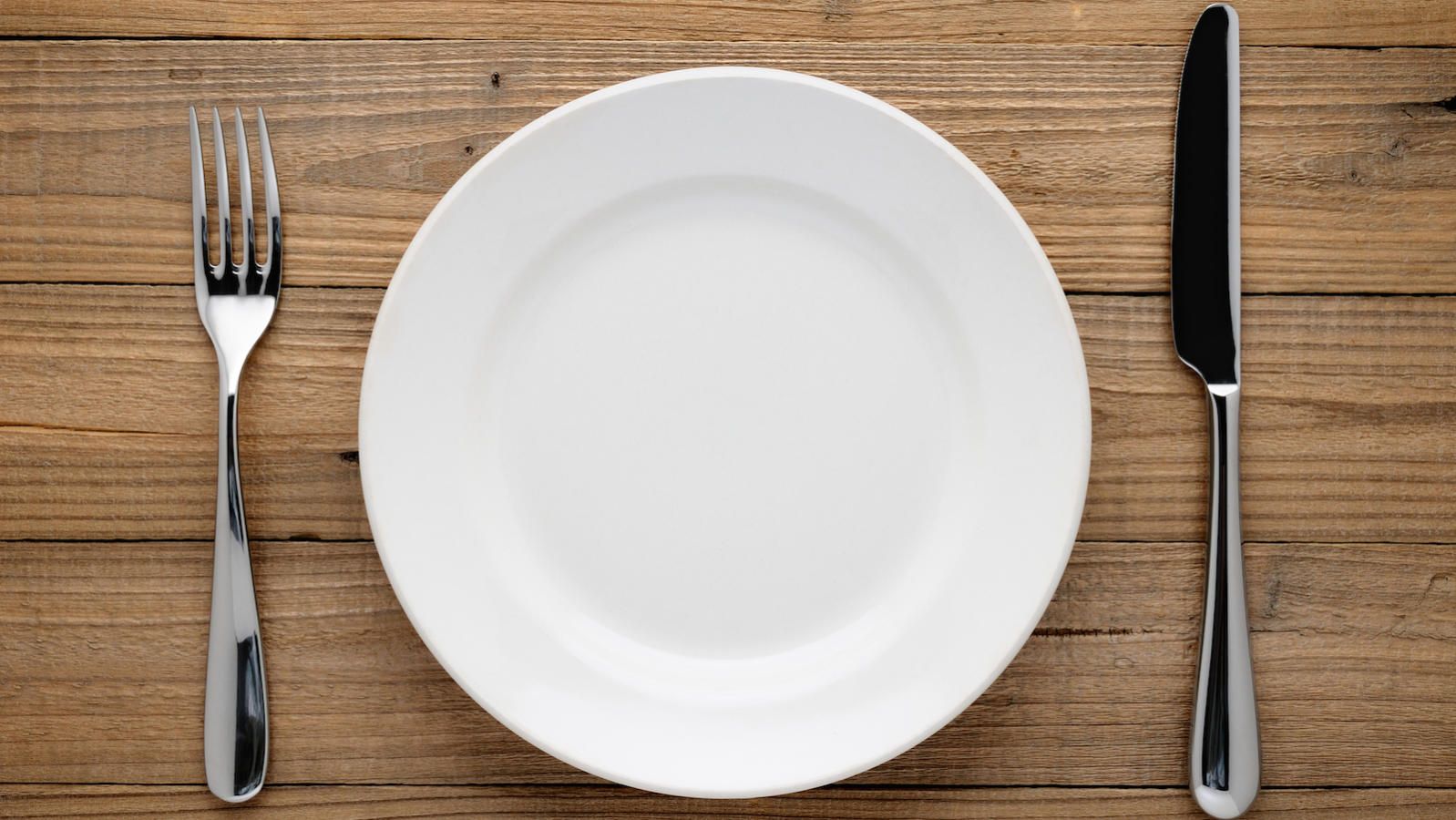
• HEALTH BENEFITS
This is where it gets really interesting and where the magic happens. Intermittent Fasting has plenty of health benefits. All supported by scientific research (links in the titles).
There are different methods/protocols of IF, as mentioned before. Some protocols require you to fast longer than others. It often depends on what is your goal and indeed which suits better your lifestyle. The benefits listed here are just the main ones and they’re valid for all the methods listed below.
#1. IF helps with hormone regulation and lowers diabetes II risk diseases.
Insulin is the hormone behind diabetes I and diabetes II. It’s released from the pancreas when you eat, raising your blood sugar levels. But by fasting your insulin levels normalise thus providing long-term diabetes II risk.
Human Growth Hormone (HGH) also increases due to fasting. Low HGH has an association with higher levels of body fat and lower levels of muscle mass. By increasing HGH you can decrease body fat and increase muscle mass. It’s a fact.

#2. It helps with calorie restriction.
Calorie restriction is proven to help you live a longer life. It’s a strategy used by people in the longevity and life extension community as a means of prolonging their life.
IF shortens the time you can spend eating which makes it easier to restrict the calories you eat. Calorie restriction is definitely not the goal of IF but it makes it easier if you want to.
Once you get into the swing of IF your body stops craving breakfast or lunch. The more you do IF the more your body stops being hungry because it’s been demonstrated that we’re hungry through habit not necessity. Hunger comes from your mind, not just your stomach; and it comes in waves, it’s not constant.
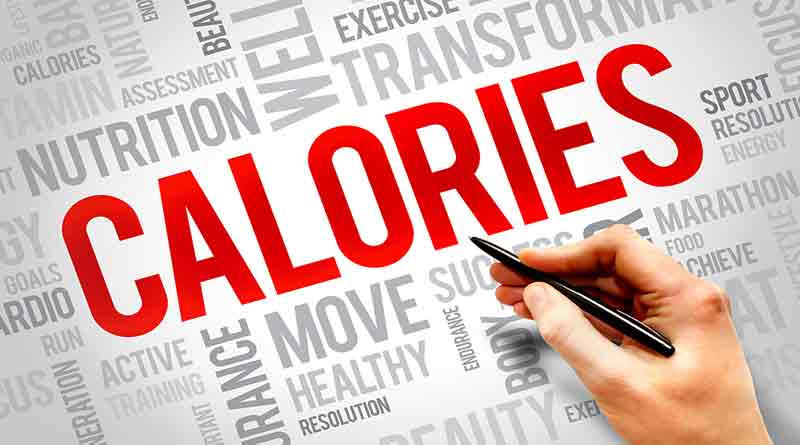
#3. Weight loss and lower body fat.
The lower insulin and increase of HGH breaks down fatty tissue in the body, especially in the belly area. This means that elusive area that men and women often find the most difficult to shift body fat is less of a problem. The process happens because our muscles begin to switch over and start oxidizing fatty acids from our body fat as a fuel. In other words, when we fast, our muscles turn into “fat burning machines”. Despite the common assumption, our bodies don’t attack our muscles and use them for fuel when we are fasting. Actually, it’s quite the opposite: our muscles turn into the machine that actively burns our body fat.

#4. It can help you better cope with inflammation.
Inflammation is the body’s attempt to protect itself from harmful stimuli like damaged cells and irritants. It’s a protective immune system response which is necessary but when the inflammation lasts for long periods of time and become chronic, negative health impacts occur.
Short-term fasting, and the calorie restriction, is able to reduce markers of chronic inflammation through the reduction of insulin levels as well as the manipulation of hormones like adiponectin and ghrelin. Many studies show that IF can reduce oxidative damage and inflammation in the body. This should have benefits against aging (check next point) and development of numerous diseases.
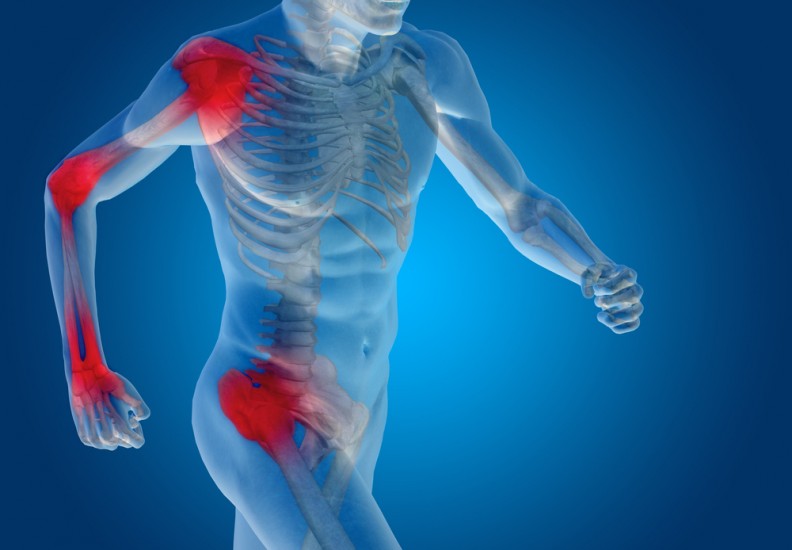
#5. Autophagy: increased cellular cleansing.
Cell damage is a part of ageing. We can’t stop it but we can try to slow the process.
Research has found IF promotes cell self-cleaning. This is called autophagy and it’s where the cells clean up, repair and get rid of any waste. It’s one of the best ways to promote longevity.
Basically, it’s your body’s internal “maintenance system” where it identifies and discards damaged or malfunctioning parts of a cell. It is an extremely important first step in the process of replacing damaged components with newly built components within your body. It is the cleanup that needs to happen before growth and repair can occur.

#6. Affects your brain chemistry.
Neuroscientist, Mark Mattson, found that reducing energy intake has all kinds of positive effects on the brain: decreasing the chances of developing a disease like Alzheimer’s.
The shock of fasting leads the brain to create new cells. As neurons are coaxed to grow, the brain becomes more resistant to the effects of protein plaques that underlie cases of Alzheimer's, or the damage inflicted by Parkinson's.
Fasting imposes more stress on the cells, but in a good way. There's an increase in adaptive stress responses when people intermittently fast that is good for maintaining the brain.
IF increases the production of proteins in the brain called neurotrophic factors. It also increases the number of mitochondria in the nerve cells. Maintaining brain health is important for a long and happier life.
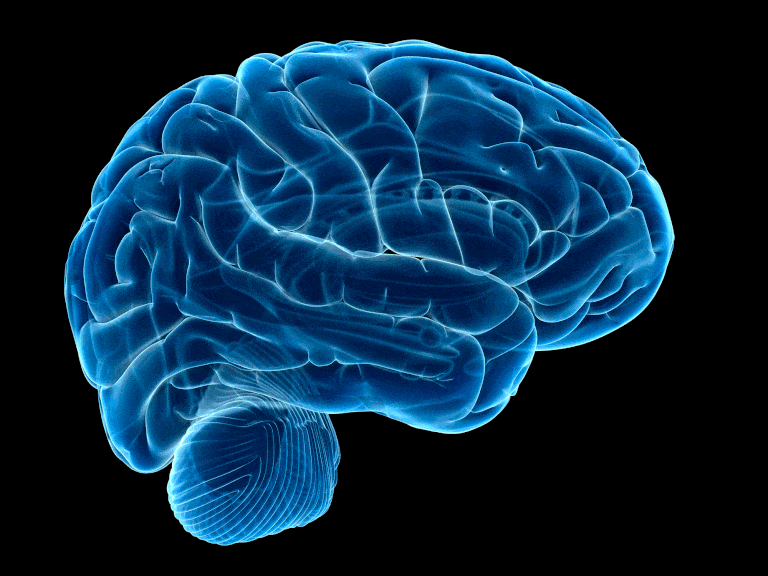
• LIFESTYLE BENEFITS
#1. Freedom.
The biggest benefit that many embrace once they begin their own IF eating lifestyle is the sense of freedom from eating never experienced before. Most people are mindlessly being slaves to the clock, eating specific times, eating all day long, and constantly worrying about food.
It can be a breath of fresh air to just mentally unburden yourself from the constant stress of food worries. This is what happens when you can accept that something so simple and yet so natural can work for you.

#2. Flexibility.
Life is always changing (as it should), so your healthy lifestyle plan should be able to change with it. Flexibility that is based on your goals, activity, daily work schedule, business travel schedule and even social/family events.
This is where most diets fail. They are too strict, inflexible, and most people just give up on them once it becomes too hard to maintain with an ever changing lifestyle.
IF on the other hand is flexible, not a diet set in stone (actually it’s not even a diet itself) and you have the power to make it work for you each and every day. No matter what happens in your life, you can always use IF to fit into your schedule however you see fit. You have the power and control to adapt it at your hours; something not possible with other diets or eating lifestyles.

#3. Mental clarity and more concentration.
This is my favourite advantage of all: an unexpected surprise that you may notice all day long. To have more: energy, mental clarity, creativity, focus and just a better mood all day long.
The blood in your body circulates way better than when you feast, it’s not concentrated in your stomach area and that gives you all these benefits.
Compare this to most people who probably eat a huge breakfast (and then lunch), are groggy, have less focus, need to snack in fear of a blood sugar crash, overload on stimulants and just feel like taking a nap most of the day (I was like that before IF).

#4. High performances.
Most people (including myself) wouldn’t have kept using IF if we had seen a drop in performance during exercise, work or other activities. So you can still do sports (play tennis, hike, bike, lift weights or whatever you enjoy) and should not see negative effects with IF, assuming activities are not excessive and that you begin your feeding window right after.
As long as you are still eating to recover overall as well as focusing on other recovery parts of your lifestyle such as getting enough sleep, IF will not interfere with your daily activities.
In fact, many studies and researches have reported increased performance/endurance when exercising in a fasted state.
Since your digestive system is not demanding blood flow and energy during IF, that can go to other parts of your body: like your muscles. You may feel lighter, faster, and more explosive while fasted.

#5. More time available and less stress.
Do you ever considered how much time we spend buying groceries, cooking, cleaning (if you’re lucky that you can do this at home in a healthy way) or at restaurants? Well, it’s a lot.
All my life I tried to eat healthy and to be honest, before IF, I didn’t like how my life became centred around my diet: I was starting to get fed up with my own behaviour. The constant meal preparing, the obsessiveness about eating the perfect meals at the right time, and the way I sometimes made excuses not to participate in social gatherings in order to meet my calorie and macronutrient goals for the day or whatever...
Now, having cleared my mind of any doubts about the meal pattern, I can’t believe how good I feel on my new “diet”. My head is clear and I don’t spend any time thinking, or obsessing, about when my next meal is going to arrive in.
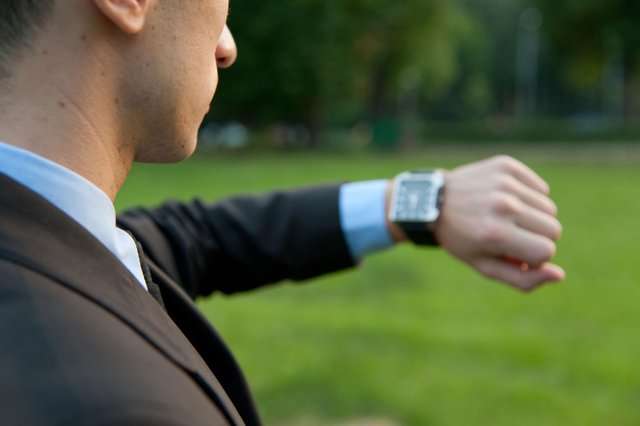
#6. Save some money.
Even though you can still eat plenty of food (hopefully healthy), you will most likely still tend to spend less overall. Take into consideration that most people are usually not cooking at home all day, so they spend more money buying their multiple meals, bars, shakes or food around.
By eating less often (but still assuming enough calories and nutrients), you will be less forced to spend your hard earned money on snacks and other quick meals that you don’t really need.

• HISTORY
Whilst IF might seem fairly cutting edge when it comes to dieting strategy, it’s actually long been proposed in a number of ancient cultures. IF has been considered a spiritual and cleansing practice for thousands of years. Hippocrates, Plato and Aristotle all saw value in the practice of fasting. In fact Hippocrates is noted to have said “to eat when you are sick is to feed your illness”. Incidentally the ancient greeks were also right about other health practices we today consider cutting edge, such as ice baths.
Many ancient religious practices also embrace the idea of fasting for spiritual reasons, in fact Jesus, Buddha and Mohammed are all scripturally linked to the practice. Modern day spiritual practices of fasting including Ramadan, Lent and the buddhist practice of eating breakfast in the morning and fasting until the following morning all clearly see value in the practice.
This is to say that our bodies are programed to fast, there’s nothing wrong in skipping meals, even for several day, contrary to modern manipulation from the economic business of nutritional system which impose us to eat frequent meals every-day to fuel our brains and bodies. Fasting is evolutionarily more “normal” and healthier for us than is eating three or six meals a day.
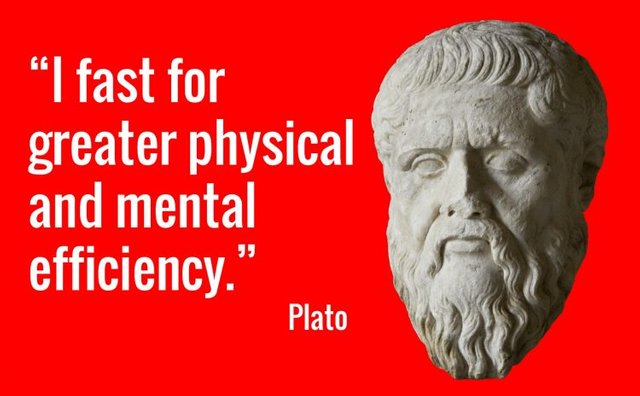
• METHODS
The Periodic Fast.
The Periodic Fast is a fast for 24 hours. The fast can be starting at any time of the day and can be done at various frequencies, though usually not more than 1-2 times per week. This diet is also advocated by Brad Pilon (“Eat Stop Eat”), where he recommends a 24-h fast every 3-5 days for weight loss and other benefits.
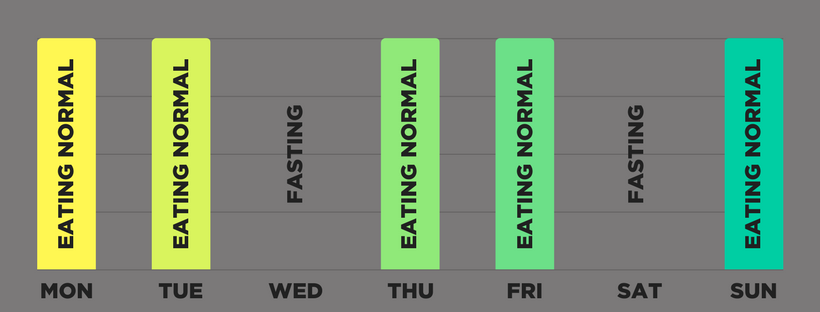
LeanGains (or 16/8).
The LeanGains method is a daily fast promoted by Martin Berkhan, a Swedish personal trainer and nutrition writer. In his method, fasting occurs for 16 h (ex. 10pm- 2pm), then food consumption occurs in about 3 meals in an 8-h window every day.
Interestingly, males and females may respond differently to the LeanGains diet; females may respond better to a larger eating window, for example 14 h of fasting rather than 16 h.
Theoretically, an advantage to the LeanGains approach could be that because the schedule is followed daily, the body may more accurately learn when to expect food. For example, if you always eat at 3:00 pm, 6:00 pm, and 9:00 pm, appetite hormones and metabolism may acclimate accordingly.
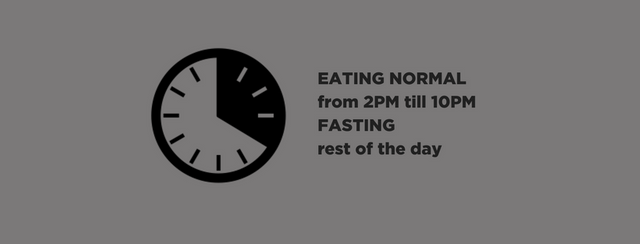
The Warrior Diet (or 20/4).
Created by Ori Hofmekler, The Warrior Diet is intended to mimic the eating habits of Spartan and ancient Greek warriors. This diet schedule is another variation of the daily fast and is one step more extreme than the LeanGains diet. The Warrior Diet promotes a single, healthy meal per day (typically dinner). It claims that this pattern of eating is in sync with humans’ circadian rhythm and will promote general health while “removing harmful toxins from the body”.
Alternate day fasting.
Alternate day fasting is when food is consumed for 24 h, then restricted for 24 h (water is available at all times) for every 2-day cycle. This is the most frequently used protocol for intermittent fasting studies with mice and rats, though few studies of this nature have been done in humans. Many animal studies looked primarily at the effects of intermittent fasting on lifespan, with varying results depending on the breed, the age of the animal when fasting was initiated, if the animals were exercised, and other factors (Longo & Mattson, 2014).
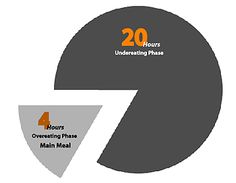
The 5:2 fast.
The 5:2 program was popularised by Michael Mosley and advocates fasting for two days a week and eating normal for five.
An example week on the 5:2 fast might look like the following. On Monday and Thursday you no more than 500 calories and on the other days you eat as normal.
The 5:2 Diet was created on the back of a BBC documentary on the benefits of fasting and has gone on to be a popular book.
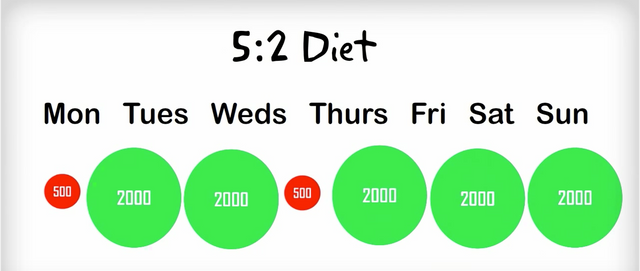
• TIPS & ADVICES
What can I consume while fasting?
You have to avoid consuming calories of any kind or your body will not keep the fasting state.
A really small amount (less than 10 to be more precise) of calories is OK but any more and you are defeating the object of fasting and all the benefits that come with it.
Some people drink just water during a fast but we can have other drinks too like black coffee, black or green tea, sparkling water, diet soda (0 Kcal recommended).
If you’re opting for tea or coffee don’t drink milk or add sugar with it.
Other than coffee and tea, I drink water. I drink a lot of water too because it helps with feeling full. A lot of what we perceive to be hunger can actually be attributed to dehydration. Use this window of time where you’re not eating to get well hydrated for the day. I recommend drinking half your bodyweight in ounces of water each day (at minimum).

Stay busy.
Take this newfound chunk of time and put it to good use; completely immerse yourself in something. That immersion and potential flow you enter is going to divert your attention away from any cravings you experience. This is more important than you may imagine. Don’t let yourself get bored. Stay engaged and use your mornings to complete your most energy-intensive tasks. Also, while fasting your brain functions way better than feeding state. So it’s a perfect time to study, read books, etc.

Which IF method is best for me?
People ask me which method is the best. I tend to look at things from a behavioural perspective first and foremost, so my reply to that is to choose the one which best suited to your daily routine and training preferences. It depends from everyone’s goals.
Like most healthy changes you have to make incremental changes to your eating habits. No one is expecting you to suddenly stop eating for a longer period than normal and be fine.
It’s a gradual process but what is probably harder is society’s views on going without food for a sustained period of time.
You’ll get strange looks or opinions from people when you tell them you’re intermittent fasting. The belief that you should eat three square meals a day is so ingrained that it will take years for the facts to get through to the mainstream. But it will… Hopefully.

• FINAL THOUGHTS
There are simply too many benefits for IF to not give it a try… If you’ve never tried IF before, then it’s certainly worth having a go. Be patient and don’t judge the effects based on a day or two. It takes time and a lot of willpower too.
It takes time for the body to adapt to, what you might call, it’s natural way of eating; it takes time for your mind to overcome the nutrition concepts you’ve been taught.
For me, IF will be a part of my life for as long as I live. Hopefully by doing it I’ll live longer too.
The supporting evidence is too conclusive and I know first-hand how it makes me feel.
If you care about maximising your health for as long as possible and want to feel (and look) better than IF should be a part of your life too.

Doing IF gives a greater understanding of what you do out of habit. Eating at certain times is just programmed dogma. IF hels you realise when you do snd dont need food. Ive found it helps crave nutritional food over junk
Exactly, and I'd add that's also an amazing opportunity to understand how lucky we're to have food available anytime. It's a psychological step forward. But hunger is totally normal from a genetic perspective, and so it should be embraced and understood.
Anyway, thanks for your comment.